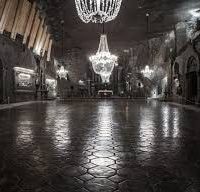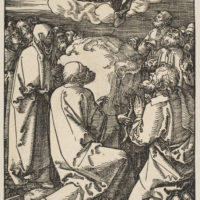Yesterday we commemorated the 20th (!) anniversary of 9/11. Can you believe it’s been 20 years?
On that fateful day in 2001, 4 commercial airliners were hijacked by Muslim extremists. 3 of them plowed into the towers of the World Trade Center in New York City and the Pentagon in Washington D.C. The 4th plane crashed into a field in Pennsylvania instead of another target in Washington D.C. – investigators are still uncertain whether the White House or the Capitol Building were intended targets – thanks to the self-sacrificing heroism of the passengers on United Airlines flight 93.
I am sure most if not all of you remember the moment you heard this horrendous news. This is just one of those traumatic events that is imprinted in our memory indelibly. How could we forget?
The casualties on that day were enormous: almost 3,000 people perished that day, more than 2,700 of them in New York City alone. More than 400 of them were first responders, putting their lives on the line to help. More than 6,000 people were injured.
Beyond that, about 1,400 rescue workers who responded on 9/11 died as a result of physical or mental injuries sustained on 9/11 in the years that followed. It is believed that 1,140 people who lived, worked, or studied in Lower Manhattan at that time contracted cancer as a result of being exposed to toxic fumes and materials. 9/11 left so many wounds, so many scars. And I would like to invite you to keep a moment of silence as we lift up all those who perished that day and in its long and even ongoing aftermath. For those who were injured in body, mind, or soul. For those who are grieving the loss of a loved one. (Silence)
I was working as an intern here at St. Matthew’s in 2001. On 9/11, Pastor Pielhoop, who worked here at that time, and I decided to open the sanctuary for silent prayer. And people came, seeking and finding refuge in this place and in the presence of God.
People were shocked, confused, devastated: how could this happen? Why did this happen?
For a brief time after 9/11, houses of worship saw a slight uptick in attendance. For a moment, people were looking for answers, and looking for meaning. I am curious as to why folks apparently weren’t finding what they were longing and looking for, since pretty soon worship numbers went down again soon after.
But a question that I heard over and over – be it from the individuals or in the media – back then was, ‘Where is God in all this?’
Now this question is thousands of years old. As Christians, we believe in a loving, gracious, and benevolent God. Which leads to the question: why does God allow bad things to happen: illness, epidemics, accidents, injustice, wars, senseless acts of violence, terror, natural disasters? Of course an easy answer would be: God punishes us. Those affected by evil must have done something wrong. I for one don’t agree with that assessment. This is not the God I believe in. This is not the God we see incarnated in Jesus Christ. Jesus gets angry, yes – yet even on his cross, his prayer is, ‘Father, forgive them, for they don’t know what they are doing.’
Now on the other hand: I cannot give you a satisfying answer to the question, why does God allow bad things to happen? I don’t know. For millennia, biblical scholars and theologians have wrestled with this question. There even is a fancy term for that, ‘theodicy’, which literally means, ‘vindication of God’. All I can say is that we should not underestimate the evil forces that exist in this world. And just a word about the personification of evil, Satan: the Hebrew word ‘Satan’ simply means ‘tempter’, or a force that tempts us. And I think we all know about how easily we all are tempted to seek our own comfort and advantage rather than the wellbeing of the community. And how much grief and disaster have people brought into this world who gave into the temptations of hatred, greed, and power …
Evil is alive and well. And it is hard for many to believe in a benevolent God and confess this God as the life-giving and life-fostering power we believe in when we experience evil all around us. It seems to me that many are ‘fair weather believers’ – when everything goes well, it is easy to praise God and sense God’s presence. But what about challenging times?
Today’s passage from the gospel of Mark is like a whirlwind. We are in chapter 8, and so far, Jesus’ mission has been quite a success – with the occasional setbacks for sure, and the religious leadership in Jerusalem is suspicious, but people in general are enthusiastic about this man who heals people from the most horrible diseases and drives out demons and works other miracles. Jesus has a favorable reputation among the people. Who do people say that I am, Jesus asks at the beginning of today’s gospel, and the disciples share what they’ve heard: John the Baptist, the prophet Elijah, or one of the other prophets from Jewish tradition – men of God who were respected and revered.
Jesus then asks his followers, ‘Who do you say that I am?’ And at this point we reach a climax and a turning point in the gospel according to Mark. Peter confesses, ‘You are the Messiah.’
Wow! Does it get any better than that? It seems easy for Peter to make this confession after all the awesome things he has experienced in the presence of Jesus so far. So here we have the great revelation, something the previous 7 and a half chapters built up to. In a sense, Mark has been taking us up and up and up to this point. And, coincidentally or not, we are now exactly half way through Mark’s gospel account.
And then? ‘Then Jesus began to teach them that the Son of Man must undergo great suffering, and be rejected, and be killed.’ From now on, the road leads to Jerusalem, to suffering and death. One could say it’s only downhill from now on.
And Peter, who just proclaimed Jesus to be the Messiah with so much enthusiasm, can’t handle it. He doesn’t want what he experiences as a winning streak to end. It’s mind blowing to him why the Messiah would submit himself to humiliation and defeat. Where could God be in all this?
Peter hangs in there, but is in danger of becoming a fair weather disciple – as Jesus is arrested and Peter’s hopes seem dashed, he, who is the first one to confess that Jesus is the Christ, the Messiah, denies him – three times. But somehow, maybe by the grace of God, he turns around and is able to see God in the man suffering and dying on the cross. He is able to recognize this God who becomes human – and shares in ALL of our human experiences. This truly is God Immanuel, God with us, even in the shadow of the darkest valley of death. This is what Christians – for the most part – have believed ever since. There is a reason why the cross has become the central symbol of our faith.
Where is God when something bad happens? God is right there, in the midst of injury and destruction and death. God is there, the indestructible life force breaking through.
As emergency workers searched for survivors in the rubble of the World Trade Center after 9/11, they found what you can see in the picture: a section of the cross beams that had held up the building stuck out of the rubble. It is said that the man who saw it first broke down and cried. People saw the cross in the midst of utmost devastation. They were reminded of this central symbol of Christian faith, our faith. They were reminded that Christ went through suffering, humiliation, and death. And that Christ prevailed. That life prevailed.
The cross is the utmost symbol of hope. And hope cannot be taken from us. Not even in events as horrible as we experienced 20 years ago, on 9/11.
Amen
This post is also available in: German







